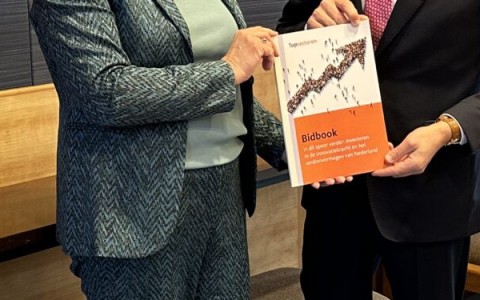Retrospective Logistics Powers the Circular Economy
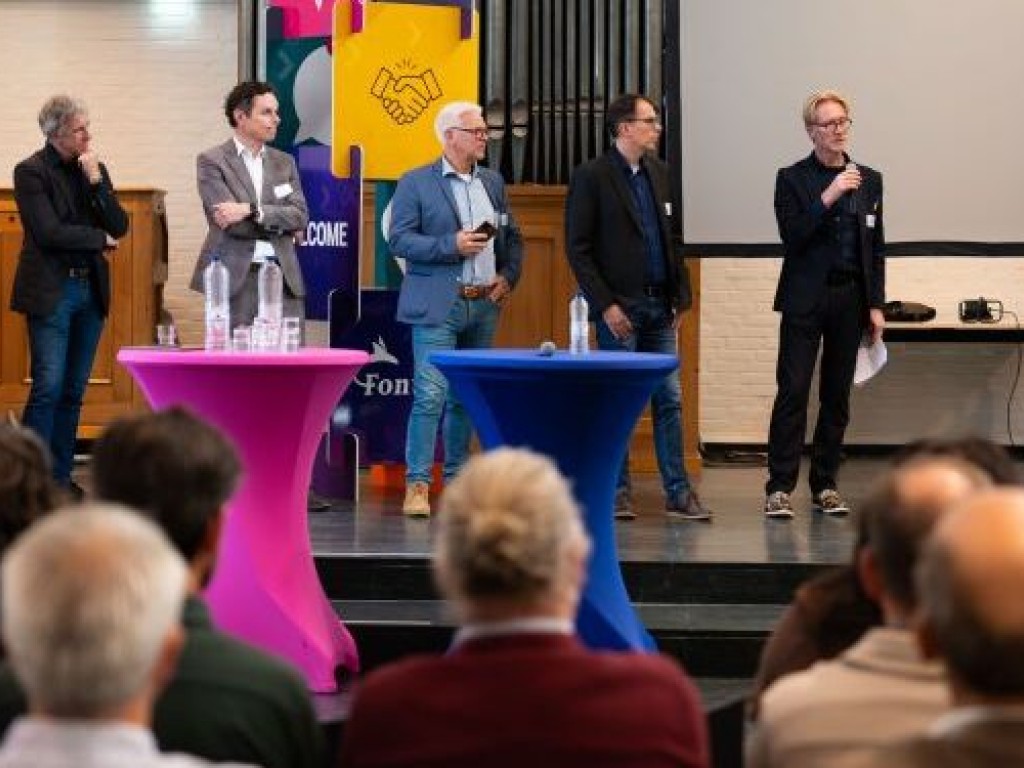
On 15 October, the collaboration conference Logistics Powers the Circular Economy took place. We look back on a successful meeting where professionals in logistics, scientists, policymakers, circular entrepreneurs and students worked together on logistics practice issues that hinder the transition to the circular economy. And for these groups to work together on this is important, moderator Victor Verboeket stressed, "I advocate looking at issues around circular business in a multidisciplinary way."
Call to Action
The conference took place in hospitable Limburg, at Fontys University of Applied Sciences in Venlo. Collaboration is at the heart of the conference: sharing knowledge, making knowledge, getting knowledge. Building a network together to take steps towards circularity with logistics. We ensure that practical challenges are solved, policies enable circular entrepreneurship and the right research is done. Thus accelerating the transition to a circular economy with logistics as an important driver.
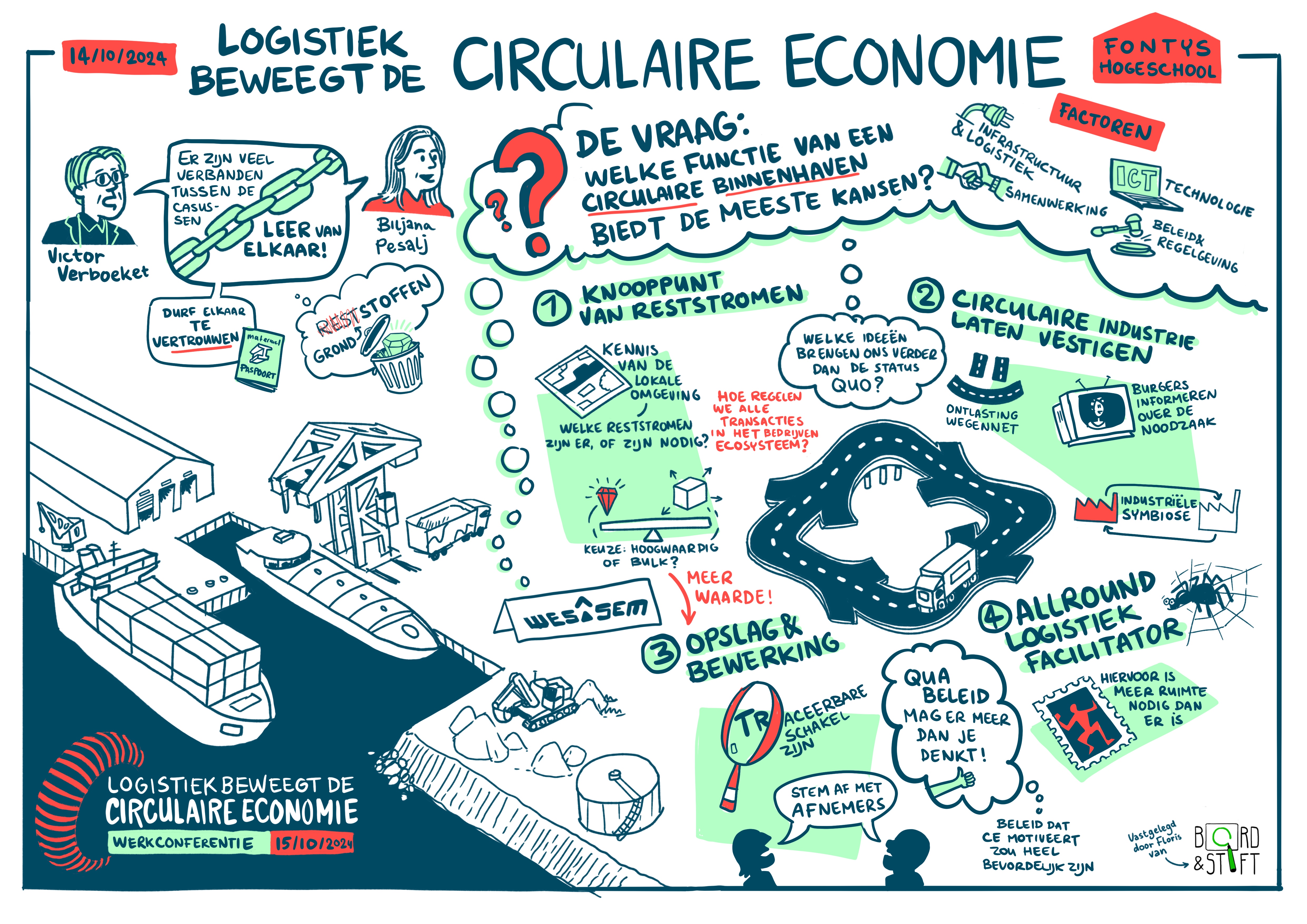 From issue to circular approach
From issue to circular approach
Taking a difficult logistics issue around circular business further in two hours with a group of strangers. That proved to be another successful recipe at this seventh edition of the conference. Participants thought along with diverse issues from parties such as Den Hartogh, Nijsen Company, Groeifonds Biobased Circular, LogiCELL, Rd4 and evofenedex, with issues ranging from information provision to transport packaging to dry bulk.
These are the main outcomes from the working sessions:
The key insight Den Hartogh has is in identifying the problem: understanding the PE liners. From there, they can look further, step by step, for example to a QR code.
The key takeaway from Nijsen's working session is that information provision has two sides: the hard, ICT side and the soft, human side in which trust is essential. The technology is there, but trust poses a challenge.
Growth Fund Biobased Circular: The takeaway from this session is the issue of infrastructure policy. How to deal with space?
In the LogiCELL working session, researchers presented their studies on logistics issues, followed by propositions on circularity in the city. Insights: the scale for circularity varies by sector.
The Rd4 working session focused on two chains: textiles and plastics. Insights textile chain is that this is a broadly layered issue due to: 1. Legislation, 2. Required change of mindset of consumers, 3. The global scale: flows go all over the world and 4. Many imports of clothing, e.g. from Asia. For the plastic chain, standardisation of prices is needed and more efforts should be made on technology, jointly by knowledge centres.
In the evofenedex working session, challenges such as data collection, data reliability emerged. There was also a question from Metos: how do we market refurbished? Here, for example, true pricing came up. Another issue that came up was transport around repairs.
Read more about the outcomes of the working sessions
Biljana Pesalj (Lecturer Circular Transitions , Fontys University of Applied Sciences) reflected: "Almost every issue is a cross between logistics and circular economy. Cooperation, trust and reliability are important in chains. A shared view is also important so that partners know what to measure and improve. Multiple factors play a role here: policy, behaviour, finance and technology all influence what is possible. These factors are evident in the issues."
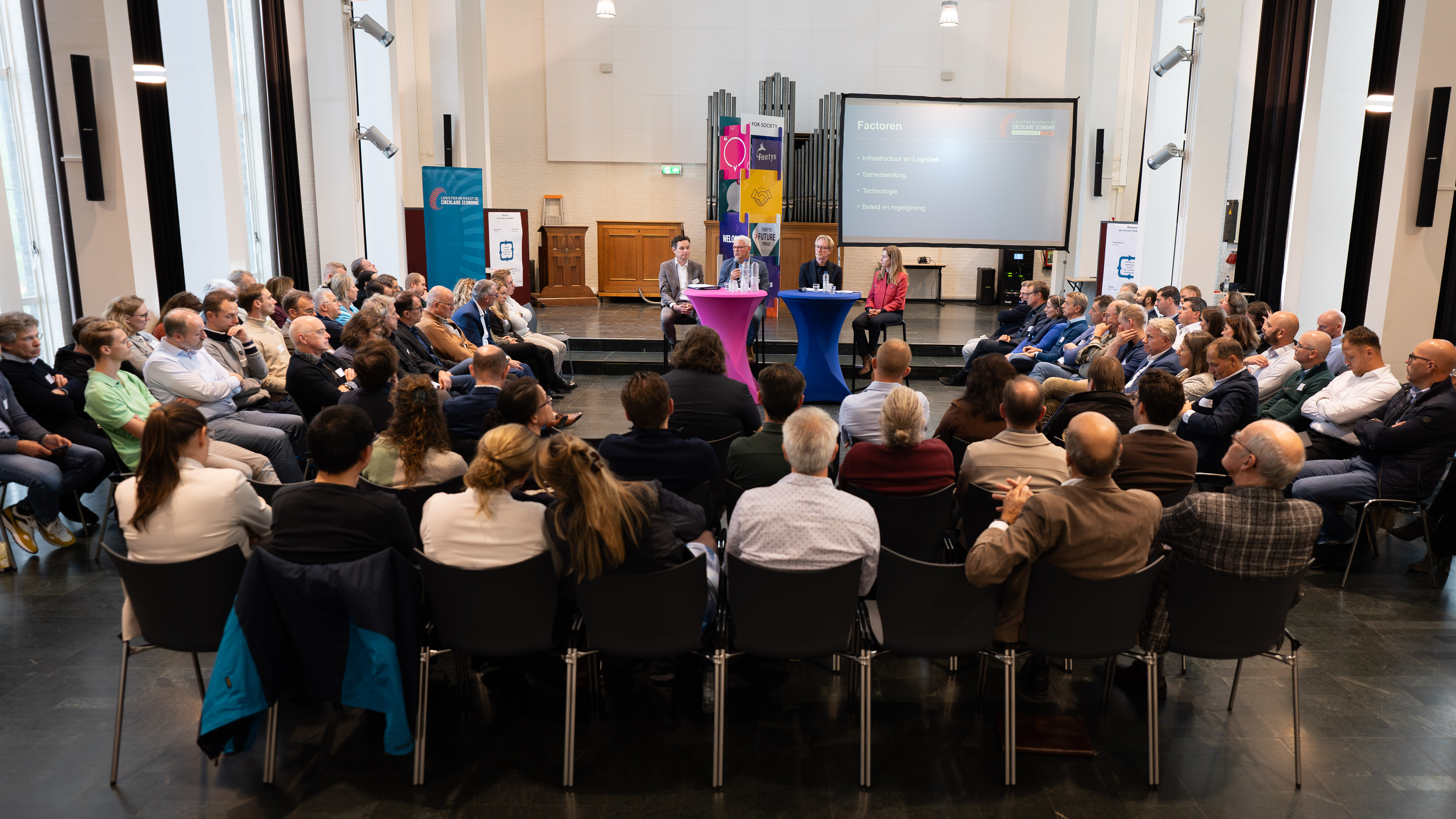 Plenary: the role of inland ports in the circular economy
Plenary: the role of inland ports in the circular economy
Plenary participants tackled an issue from inland port Wessem Port Services Group: what role lies ahead for inland ports in the circular economy? The port, started 55 years ago to supply the Limburg region with raw materials, sees a change in supply and opportunities to offer recycling as a service due to the transition to biobased materials.
Wessem sees four possible roles for itself in the circular economy:
Transport hub for sorted waste streams
Storage and processing location for circular waste streams
Settlement location for circular industry
Sustainable inland port as all-round logistics facilitator
This issue is not only with its own ports, stressed general manager Bob Joosten: "Take the keys to 30 inland ports in the Netherlands. In which position do you have to consider which issues? Where are the biggest opportunities?" Pesalj complemented: "What impact will Wessem's choice have on other parties in the region and beyond?"
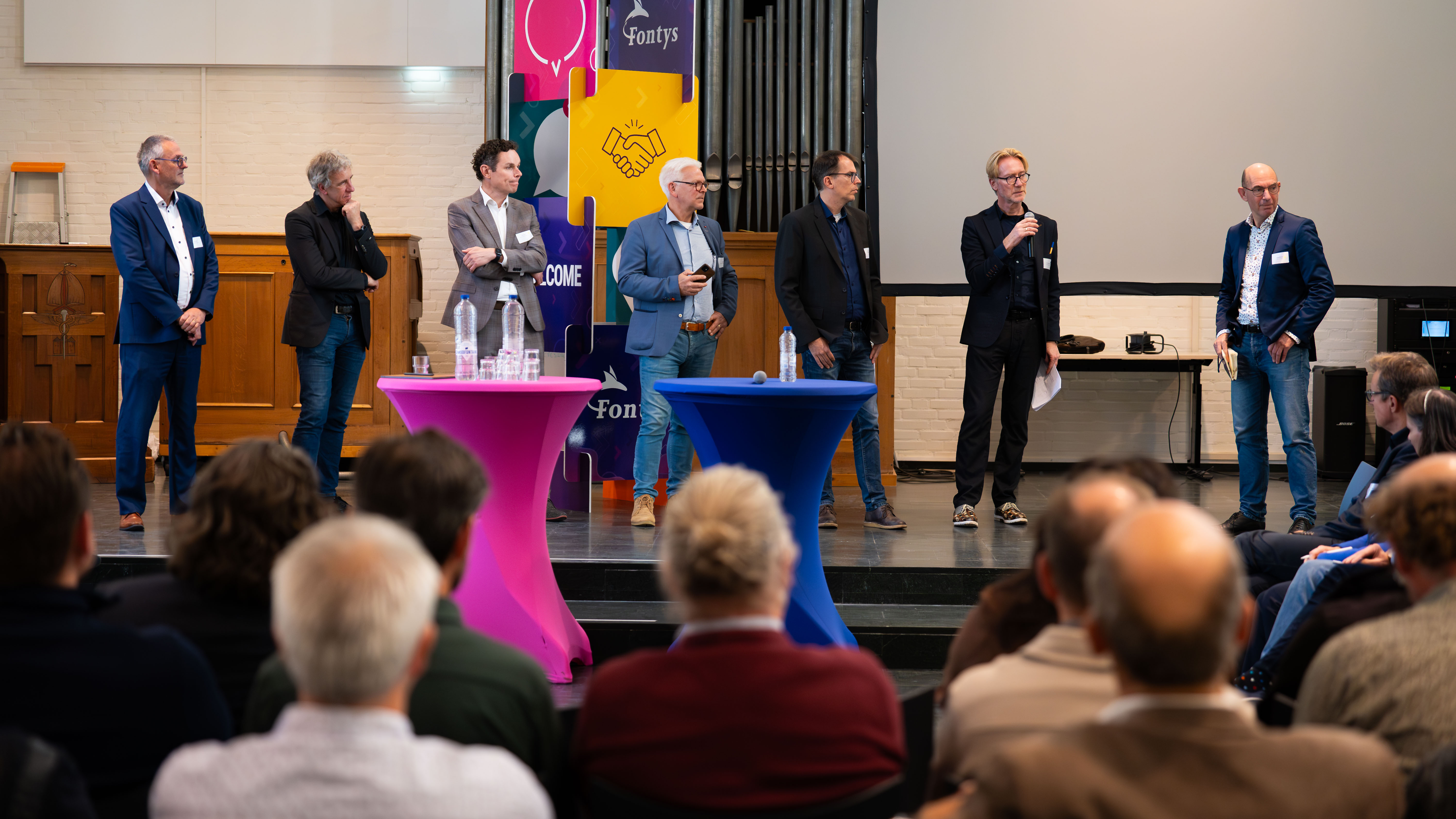 Participants filled in, using the factors of infrastructure, technology, cooperation and policy & legislation, what Wessem needs to consider for different functions. Experts Kees Machielse (lecturer on Transition of the Port, Rotterdam University of Applied Sciences), Pascal Ravesteyn (lecturer on Process Innovation and Information Systems, Utrecht University of Applied Sciences), Theo Stevens (Logistics Change Manager, Limburg Province) and Antoine Heideveld (director of Het Groene Brein and partner in the Versnellingshuis) then linked back what they saw happening.
Participants filled in, using the factors of infrastructure, technology, cooperation and policy & legislation, what Wessem needs to consider for different functions. Experts Kees Machielse (lecturer on Transition of the Port, Rotterdam University of Applied Sciences), Pascal Ravesteyn (lecturer on Process Innovation and Information Systems, Utrecht University of Applied Sciences), Theo Stevens (Logistics Change Manager, Limburg Province) and Antoine Heideveld (director of Het Groene Brein and partner in the Versnellingshuis) then linked back what they saw happening.
Three broad themes emerged. First, the theme of space and the importance of using it efficiently. Second, the theme of trust in the chain and reliability of data. Third, the importance of anticipating future laws and regulations.
Pesalj reflected on the Wessem case study with two key insights. First, addressing wicked problems. "Bring different stakeholders with different perspectives together in a room. We all know a piece of what is going on, but nobody has the full overview. We are all in a linear system."
The second insight: "There are more factors than these, and they are dynamically linked. Regulation should encourage, but is also influenced by the development of the other factors. There is also a need for behavioural change, technological innovation, adequate financial instruments and infrastructure improvements. These factors must come together to bring about change. This makes the long-term view difficult."
Insights Wessem Port Services Group
What does Wessem take away from the conference? "Seek cooperation to become bigger and stronger in the region. And don't close your ears to legislation, but be proactive about it," indicated commercial director Peter van Gemert. Managing director Bob Joosten complemented: "Entrepreneurship is proactive. The feeling with the circular economy is reactive, because you don't know where the market is going."
To support Wessem in cooperating with the chain towards the circular economy, Antoine Heideveld offered to apply for a chain breakthrough project with Wessem and chain partners at the Versnellingshuis Nederland Circulair! In such a chain breakthrough project, chain partners work together to remove barriers in order to achieve investments and feasible business cases.
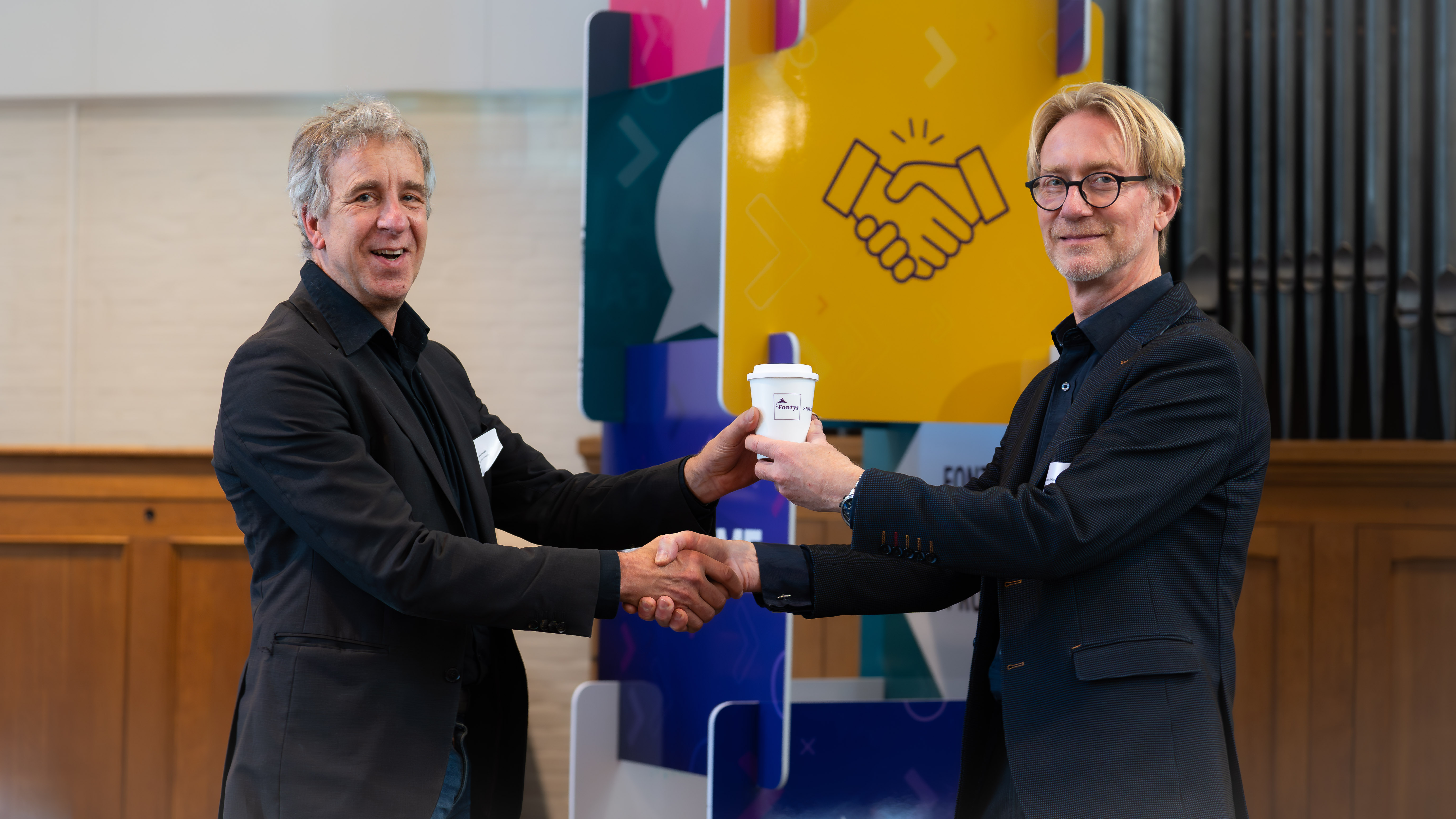 Next edition
Next edition
For the next edition for the collaborative conference Logistics Powers the Circular Economy, we will follow the Meuse from Venlo downstream to our next location: Rotterdam! Moderator Victor Verboeket symbolically handed over a glass of Maas water to Kees Machielse of the Hogeschool Rotterdam, host of the 2025 conference.
We look back on an inspiring conference in which steps towards circularity were taken with logistics. Thanks to all participants, case holders and stakeholders for their input, and special thanks to Fontys University of Applied Sciences as host of this edition. See you next year!


